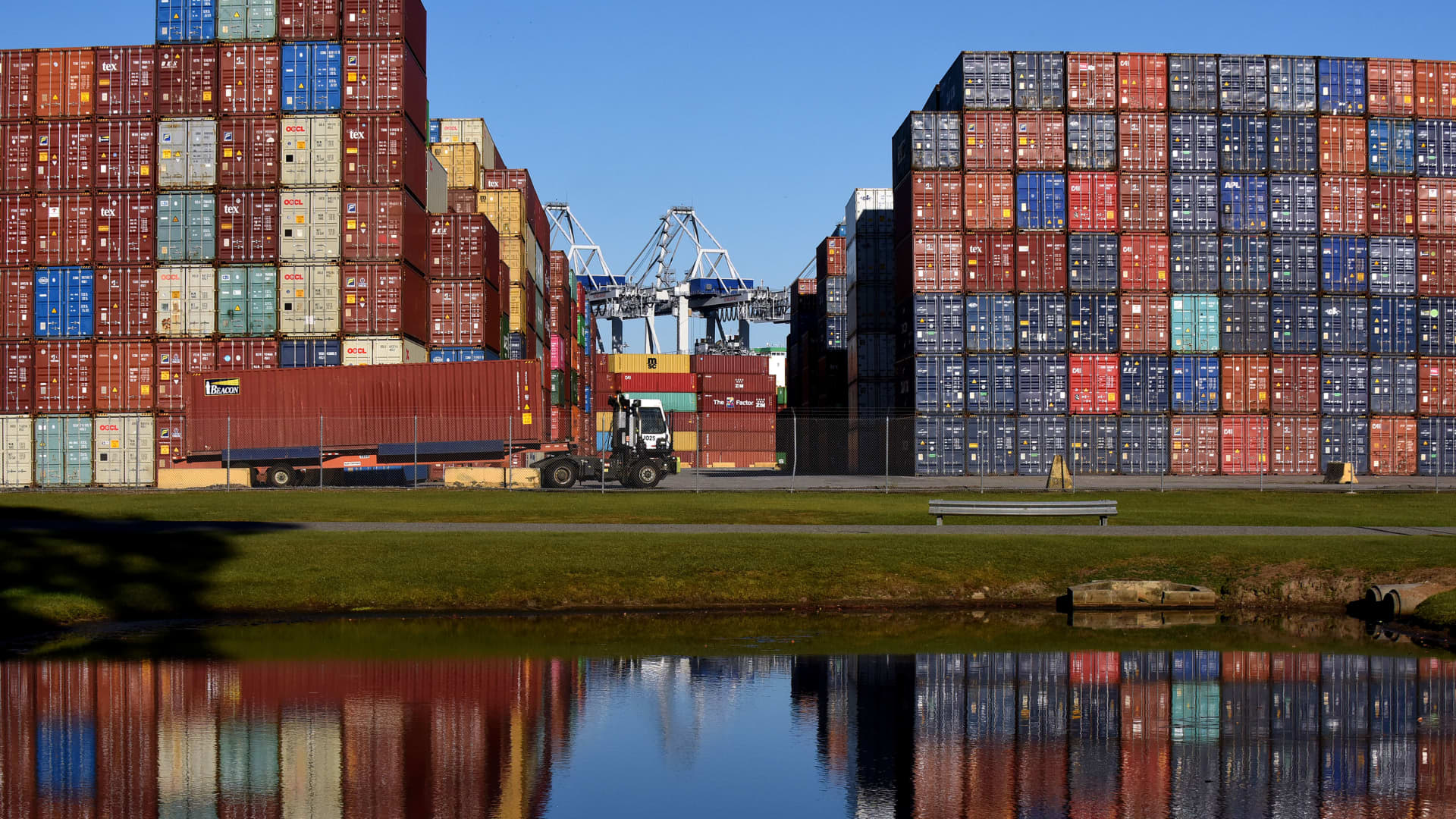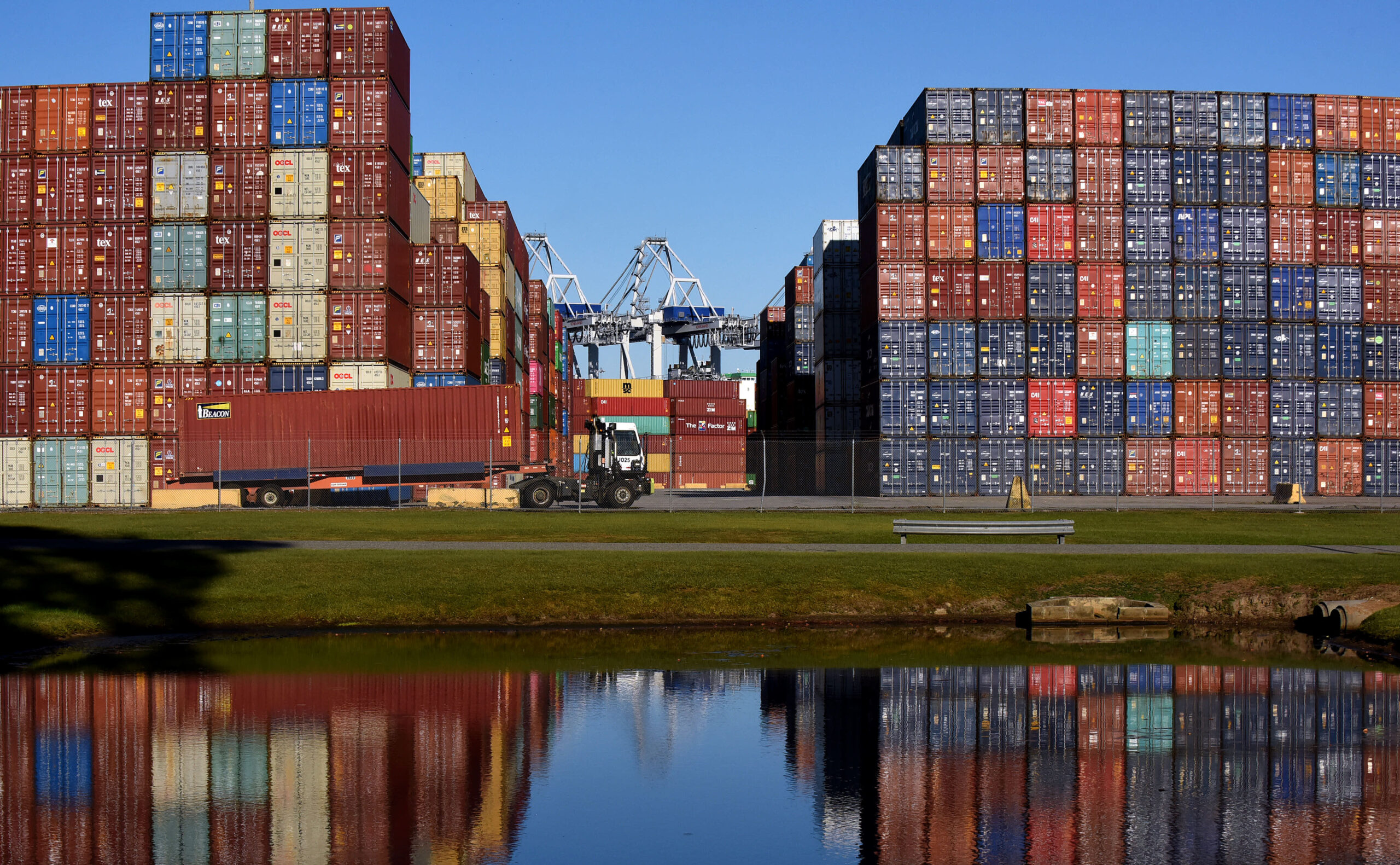
As the International Longshoremen’s Association port workers move closer to a strike at East Coast and Gulf Coast ports, the union is warning that major importers such as LG Electronics, Walmart, Ikea, Samsung, and Home Depot will find no options to divert trade to Canada or the West Coast as other unions close ranks in support of its labor battle.
These companies are among the leading importers at the 14 major ports that an ILA strike would impact, according to ImportGenius. Overall, between 43%-49% of all U.S. imports and billions of dollars in trade monthly are at stake as the union moves closer to the Oct. 1 deadline for a new contract, over which talks between the union and ports management broke down in June and have not resumed. Cruise operations at ports would continue.
“To stop trade entering the U.S. on such a large-scale, even for short period of time, is highly-damaging to the economy so government intervention will be needed to bring the matter to a resolution for the good of the nation,” warned Peter Sand, chief shipping analyst at Xeneta. “A strike lasting just one week will impact schedules for ships leaving the Far East on voyages to the U.S. in late December and throughout January.”
While some logistics managers say Canada and the West Coast are options for vessels to divert to and unload cargo, the ILA has union chapters at the Atlantic Coast and Great Lakes ports in Canada.
The ILA is North America’s largest longshoremen’s union. Out of the 85,000 members, 50,000 would go on strike at the 14 ports that are subject to a master contract that has not been negotiated.
“You can be sure the ILA’s 85,000 members will be supporting their Sisters and Brothers,” said James McNamara, spokesman for the ILU.
Separately, the Port of Montreal union affiliated with the Canadian Union of Public Employees issued a 72-hour notice that its own three-day strike starts on Monday, Sept. 30. Mia Ginter, director of North American ocean shipping at C.H. Robinson, tells CNBC this strike could exacerbate the U.S. port strike disruption. “With Canada being a main contingency route, an overlapping strike at the Port of Montreal, even with some terminals remaining operational, will significantly weaken this as a contingency route,” she said.
Additionally, Ginter noted that Hurricane Helene’s impact on the U.S. Southeast means fewer trucks are heading to those ports, which could affect importers trying to move their freight out before an ILA strike begins.
The last time the ILA went on strike, in 1977, the ILWU union at West Coast ports supported it by allowing ILA members to go to the Port of Los Angeles to stop the unloading of a diverted vessel. Its president Harold Daggett has cited this historical example in recent communications with rank-and-file members, which voted unanimously to authorize a strike.
“We’ll shut them down,” Daggett said in a recent video message to union members.
ImportGenius compiled the Bills of Lading for 2024, the digital receipts of the containers which has shipper and product information, at the ports of New York/New Jersey, Baltimore, Savannah, Houston, North Carolina, South Carolina, Virginia, and New Orleans.
LG Electronics topped the list with 54,363.57 TEUs (twenty-foot equivalent units). Walmart was second with 47,680.10 TEUs, followed by Ikea at 42,938.74. Other top importers are Bob’s Furniture, Samsung, Home Depot, Hyundai, General Motors, Dollar General, and Amazon. Tire companies Michelin, Goodyear, and Continental Tire were also top importers.
The top importers for New York and New Jersey, the largest port on the East Coast, was General Motors, Glovis America, LG Electronics, Samsung Electronics, and Bob’s Furniture, in that order, according to William George, director of research for importGenius. IKEA is No. 1 importer at Baltimore. In Savannah, the largest port in the South, Hanwha Q Cells Georgia, a division of South Korean company which makes solar cell components, Walmart, and automotive logistics company Glovis America, are the top importers, according to its data.
On average, it takes one week to clear out one day of a port closure, according to Sand, and the stakes are high with more than 40% of total containerized goods entering the U.S. through ports on the East Coast and Gulf Coast.
On Thursday, the group representing ports management, the US Maritime Alliance, more commonly known as USMX, filed an Unfair Labor Practice charge with the NLRB citing the union’s “refusal” to come to the negotiating table for the Master Contract. A spokeswoman for the NLRB said in a statement to CNBC that its Newark office will begin investigating the charge, and a decision is typically made about the merits of a charge within seven to 14 weeks, although certain cases can take much longer. The spokeswoman added that during this period, the majority of charges are settled by the parties, withdrawn by the charging party, or dismissed by the NLRB regional director.
The USMX has said in a statement recently posted to its website that the ILA continued to “strongly signal” that it has already made the decision to strike.
The Biden administration has said it will not invoke powers under the Taft-Hartley Act to force union members to go back to work, as first reported by CNBC, and urged the parties to return to the bargaining table.
ILA president Harold Daggett explained in a recent video to union members that for the 2024 contract negotiations, the union would first negotiate all the local agreements from the 14 major ports from Maine to Texas before the ILA would sign off on a Master Contract. McNamara told CNBC some local port areas are still finalizing agreements, but declined to be more specific.
The 14 ports are Boston, New York/New Jersey, Philadelphia, Wilmington, Baltimore, Norfolk, Charleston, Savannah, Jacksonville, Tampa, Miami, New Orleans, Mobile, and Houston.
According to supply chain intelligence firm Kpler, 147 vessels (a combination of container ships and roll-on/roll-off vessels) are en route to the East Coast and Gulf ports by Oct. 1, with 38 of those vessels headed to the Port of NY/NJ. The total carrying capacity of the inbound vessels is 686,181 twenty-foot equivalent container units. The value of that freight is upward of $34.3 billion, based on an MDS Transmodal estimate of $50,000 per container.
The Port of New York/New Jersey, as well as ports in Texas and Georgia, and major ocean carriers, have begun preparations for a potential strike. The Georgia Ports Authority recently advised import delivery “well before October 1 to minimize any disruptions.”
Maersk has said that due to potential labor disruptions, it will be implementing a local port disruption surcharge for all cargo moving to and from the U.S. East Coast and Gulf Coast terminals, effective October 21, which will be imposed depending on the impact to the supply chain and higher operational costs that it incurs.
An analysis from research firm Mitre estimates that a 30-day strike centered at the Port of New York and New Jersey could result in an economic impact as high as $641 million per day. In Virginia, an economic impact of $600 million per day is forecast, or roughly $18 billion over 30 days. Export impacts at Houston operations could reach $51 million per day, and $41.5 million per day for imports.
EMEA Tribune is not involved in this news article, it is taken from our partners and or from the News Agencies. Copyright and Credit go to the News Agencies, email news@emeatribune.com Follow our WhatsApp verified Channel




